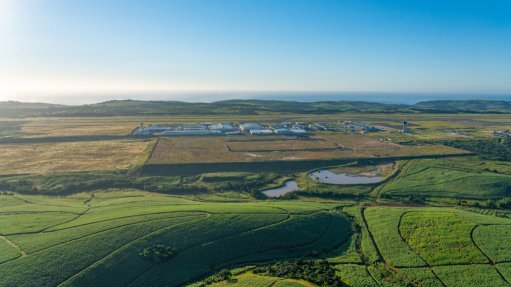
Special economic zone the Dube TradePort has acquired more than 200 ha of land over the past five years with the specific purpose of conserving environmentally sensitive land near its development operations.
This forms part of a crucial and comprehensive sustainable development strategy, which will encompass about 10 000 ha of green spaces, ahead of the implementation of the 50-year masterplan for the Durban Aerotropolis.
"This newly acquired land includes 80% of wetlands, adding to the existing 854 ha designated for rehabilitation and restoration within the delineated conservation area. The land acquisition process involves input from planners, environmentalists, and property portfolio specialists to ensure the conservation of critical biodiversity and implementation of ecosystem services as a means for mitigating climate change," says Dube TradePort environmental management services manager Zama Dlamini.
Ongoing rehabilitation and restoration projects have already yielded positive results, including the reintroduction of the grey crowned crane (Balearica Regulorum), which has been observed breeding in the wetlands on the western boundary of the Dube TradePort precinct.
This area is now protected from all development activities by a 1 km buffer zone, he adds.
"Additionally, a healthy buffer created and managed under the current rehabilitation and restoration project is maintained to protect the pickers gill reed frog species (Hyperolius pickersgilli) found within Lake Victoria and Froggy Pond wetland, on the southern boundaries of our Dube City development.
"These frogs are sensitive to minor changes in their environments and require dense reed beds and vegetation for breeding, as well as a variety of insects," says Dlamini.
"Dube TradePort, in collaboration with the Endangered Wildlife Trust and King Shaka International Airport, continues to monitor these species through ongoing wet-health assessments," Dlamini continues.
Meanwhile, Dube TradePort is continuing with regular alien plant control, including the removal of dead leaf and grass material through controlled burning within conservation areas as well as restoring suitable habitats for species, like the pickers gill reed frog and grey crowned crane.